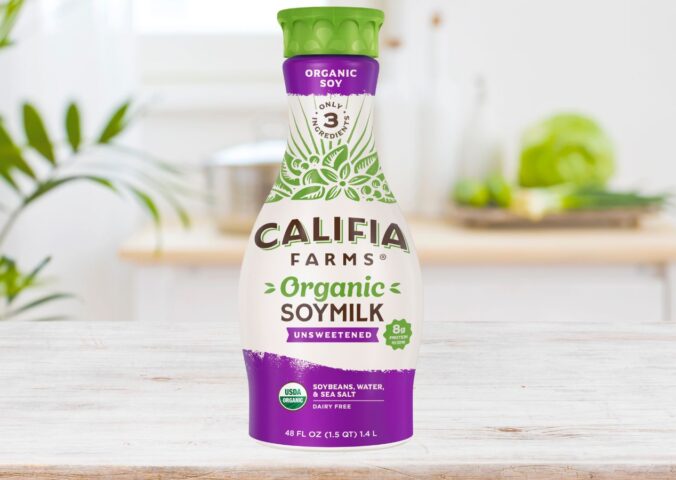We all love protein. It’s the second most abundant molecule in our body, beaten only by water. While it’s perfectly easy to get enough protein on a plant-based diet, many athletes opt to make shakes with protein powder. With gym-goers looking to get the maximum possible benefit from their workouts, what really is the healthiest protein powder?
There are two main types of protein powders – plant-based and whey protein. Whey is one of two main proteins in cow’s milk, and is not suitable for vegans. It’s the name given to the remaining liquid after dairy milk has been curdled and strained.
A great deal of the protein powders you’d buy in the UK high street are whey-based. It’s high in protein, and many people believe it to be beneficial to health. This has, however, been questioned by some experts.
Is whey protein bad for you?
Consuming dairy has been linked to a number of health and environmental concerns.
Here are the top five reasons why you should consider avoiding whey protein – and instead switch to a plant-based protein powder:

1. Could whey protein trigger acne?
The links between hormones, stress, and acne have been known for years.
However, according to the American Academy of Dermatology, several studies have examined the link between diet and acne. The evidence suggests dairy intake can worsen and trigger acne due to digestive stress and excess hormones being added to the diet.
2. Whey can be harsh on the digestion system
Approximately 65 percent of the world is genetically lactose intolerant, according to the US National Library of Medicine.
Lactose intolerance rates can vary according to ethnicity. For example, it is thought that between 90 and 100 percent of people from East Asia are unable to digest lactose, and 80 percent from central Asia.
This reduced ability to digest lactose often starts in early adulthood, meaning that dairy-based products may cause some form of digestive stress in majority of the worlds adult population.
According to BANT Registered Nutritionist Louisa Richards: “Whey protein is not suitable for people with dairy allergies and may cause unpleasant digestive symptoms such as bloating and gas.”
3. Whey protein is harming the environment
The animal agriculture industry is responsible for at least 14.5 percent of global greenhouse gas emissions. It’s thought that dairy contributes to around four percent.
Livestock farming is also a major contributor to deforestation and biodiversity loss. Cattle farming is the most destructive industry, due to the fact that the animals require vast amounts of land.
Unless we reduce our dairy impact and cut down on products like whey protein, the industry will continue to negatively impact our planet.

4. Dairy cows suffer on farms
There are around 270 million cows producing milk at any given moment around the world. The dairy industry is hugely cruel and exploitative, with animals used in it inevitably leading miserable lives.
Most dairy cows have been selectively bred to produce far more milk than they naturally would. Understandably, this takes a toll on their bodies, and they will often suffer from an udder inflammation called mastitis.
What’s more, it’s thought that around 30 percent of cows in the UK suffer lameness. This often arises because they are forced to stand on hard surfaces for long periods of time. Injury, infectious disease, ineffective hoof trimming can also cause lameness.
5. Dairy rips calves from their mothers
But perhaps the cruelest component of the dairy industry is that newborn calves are taken from their mothers around 24 hours after being born. This is so humans can take the milk intended for them.
Dairy cows are forced to give birth around once a year in the industry. And they will each time suffer this trauma. The mothers will often bellow and cry out for their young for weeks after giving birth.
What are the alternatives to whey protein? Is plant-based protein enough?
There are some concerns that plant-based proteins may not contain the same amount of nutrients as whey.
“People may have concerns that plant proteins are lacking in some amino acids and not as effective in building muscle as whey protein,” Richards tells Plant Based News. “However, research indicates that combining different plant proteins, such as hemp, rice, and pea, can provide characteristics that reflect animal proteins. There are a number of excellent plant protein powders available as an alternative to whey protein.” One company producing plant-pased protein powder is PlantWarrior. It uses pea, rice, hemp, quinoa, and chia proteins to create a dairy-free alternative that has the benefits of whey.
Are protein shakes safe?
While it is usually perfectly safe to use protein powder, Richards has also warned against ingesting too much of it.
“Some researchers have concerns about proteolytic fermentation in high-protein diets. While experts know that plant foods are beneficial for gut bacteria, high-protein diets may cause more undigested protein in the large intestine, with potentially negative consequences for health.”
—
This article was originally published on September 11, 2017. It was last updated on February 28, 2023.






